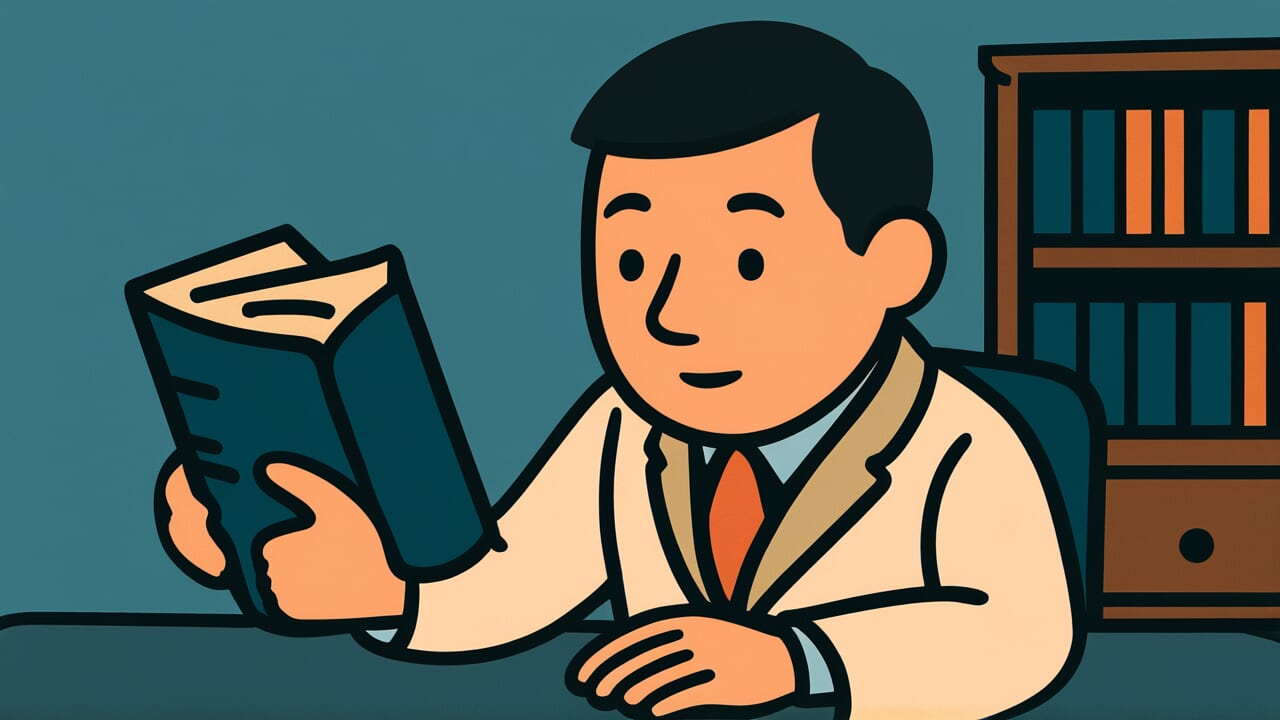How to Read “No scholar has ever taken the realm”
Gakusha no totta tenka nashi
Meaning of “No scholar has ever taken the realm”
“No scholar has ever taken the realm” means that academic knowledge alone cannot lead to success in politics or practical affairs.
No matter how well someone understands theory or how much knowledge they have, that alone cannot solve complex real-world problems, move organizations, or lead people.
This proverb doesn’t look down on scholarship. Rather, it shows both the limits of academic learning and the importance of practical ability.
In politics, business, and all practical situations, you need more than just theory. You need the ability to build relationships, read situations, make brave decisions, and learn flexibly from experience.
Knowledge from books is valuable. But without the wisdom to apply it to reality, it won’t produce actual results.
Even today, people use this saying to describe those with high education who can’t deliver results at work, or leaders with perfect theories who can’t move people.
Origin and Etymology
The exact origin of this proverb isn’t clearly documented, but people likely used it from the Edo period onward.
The phrase “taking the realm” was widely used from the Warring States period through the Edo period. It meant seizing political power.
The background of this proverb probably relates to the relationship between scholars and politicians in Japanese history.
Scholars who studied Chinese Confucianism understood theory and morality well. However, they didn’t necessarily succeed in actual politics.
Many warlords who unified the Warring States period and practical administrators who supported the Edo shogunate hadn’t necessarily mastered advanced scholarship. This fact likely influenced the creation of this proverb.
During the Edo period, the government encouraged learning like Neo-Confucianism. Yet actual politics was run by experienced samurai serving as senior councilors and magistrates.
Confucian scholars who studied at academic institutions rarely stood at the center of politics. They more often remained in advisory positions.
People who observed this reality probably created this proverb to express the difference between scholarship and practical work.
Usage Examples
- He has a doctorate in economics, but no scholar has ever taken the realm—his company management ultimately failed
- The policy planning was perfect, but failing at the execution stage by not listening to frontline voices—that’s truly no scholar has ever taken the realm
Universal Wisdom
The proverb “No scholar has ever taken the realm” sharply perceives two aspects of human intelligence.
One is knowledge gained from books. The other is wisdom cultivated from experience. Humanity has long recognized this difference and sometimes struggled with it.
Why don’t excellent theorists necessarily become excellent practitioners? Because the real world isn’t as simple as what’s written in books.
Humans have emotions. Situations constantly change. Unexpected events happen one after another.
Theory shows the correct answer under ideal conditions. But ideal conditions never exist in reality.
This proverb has been passed down for so long because many people have experienced the huge gap between “knowing something” and “being able to do something.”
Everyone faces situations where they understand something mentally but can’t execute it, or where something is logically correct but doesn’t move people’s hearts.
Our ancestors understood that true power comes from both wheels—knowledge and experience.
Scholarship shows direction like a compass. But to actually row the boat, ride the waves, and reach your destination, you need trial and error in the field.
This proverb conveys a universal truth. Human growth requires both learning in the classroom and learning in life’s rough seas.
When AI Hears This
The reason scholars can’t take the realm lies in the “calculation trap” that higher intelligence creates. Game theory makes this surprisingly clear.
Situations like unifying the realm are “imperfect information games” where you can’t fully read your opponent’s moves.
What matters here isn’t finding the optimal move. It’s executing a 70-point strategy in 0.1 seconds.
But scholars examine every possibility. While they analyze that option A has 12 possible developments and option B has 15, the battle situation changes moment by moment. This is called “analysis paralysis.”
Even more serious is the “curse of knowledge.” As knowledge increases, the variables you must consider multiply.
For example, analyzing enemy troop strength, terrain, weather, provisions, morale, and alliances—10 elements—creates enormous combinations. Mathematically, each additional variable causes computational complexity to explode exponentially.
Meanwhile, people who take the realm are satisfied with “good enough solutions.” They move when they have 60% confidence, even without perfect information.
This difference is decisive. In other words, high intelligence creates too many options, sacrificing the most important parameter—speed of action.
This is the mathematical reason why scholars can’t take the realm.
Lessons for Today
This proverb teaches you the importance of continuing to practice while continuing to learn.
Getting certifications or reading books isn’t enough by itself. Knowledge truly becomes yours only when you actually use it.
In modern society, access to information and knowledge has become easier than ever before.
But precisely because of this, the difference between “knowing” and “being able to do” has become clearer. Even if you learn through online courses, you won’t gain true ability without trial and error in actual projects.
What matters isn’t looking down on scholarship. It’s testing what you’ve learned in real situations, learning from failures, and running the cycle of improvement.
Theory is like a map. It shows you direction, but you’re the one who actually walks.
The experience of moving forward on your own feet, stumbling and getting lost along the way—that’s what truly makes you grow.
An attitude that values both knowledge and experience, both theory and practice—this becomes your strength for living in the modern world.



Comments